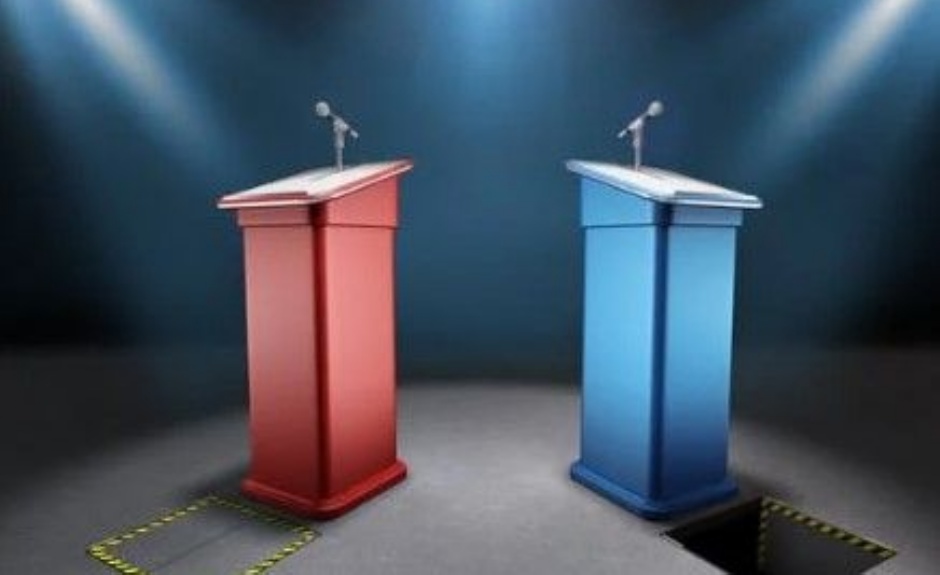Debating Commoner with Mr Duncan

Twelve eager boys have joined Mr Duncan’s Debating Commoner on a Monday this term. Running on similar lines to Mrs Bailey’s popular Tuesday Commoner, the group has selected some topics they would like to debate, roles have been assigned (two proposing the motion, two against, a judge, a writer and the rest audience), and debate has been joined! The first two debates – one on assisted dying, and one on the abolition of the monarchy – have taken place, and they have been written up by a boy. If you are interested in finding out about the quality of their debate, do read on below!
20 January: Assisted Dying
Proposition: The UK Government should legalise assisted dying
The proposition started by laying out the grounds for how assisted dying could be implemented. They stated that if you have a mental illness, are under 18 or doctors deem that you do not have the mental capacity to make your own decisions, then you cannot request assisted dying. They also stated that you can only request assisted dying if you have less than 6 months to live. They went on to say that if you are going to die soon, then your quality of life is likely to be bad, so it is cruel to deny a humane death. They said that 73% of the British population believe that assisted dying should be legalised, and they emphasised the hypothetical nature of the opposition, saying that the question was whether we “should” legalise assisted dying and not whether we “can” legalise it with the right protections.
The opposition then said that in an article by the associated press, it says that in Canada people were killed despite the concerns of the family and that the nurses improperly helped people in requesting assisted dying. They went on to say that despite this, Canada still wanted to expand euthanasia and that 1/20th of Canada’s deaths were happening because of assisted dying and that in Quebec that number was 37%. They also went on to say that some countries mostly implement it as a cost-saving method which they argued was inhumane.
The proposition went on to say that it was beneficial for the families of patients as they can prepare for death by assisted dying, whereas if their loved one died abruptly, it would be more traumatic for the family and would catch them by surprise. They also stated that assisted dying would end the suffering of the patient and that as God is omnibenevolent, he would wish to end peoples' suffering by assisted dying. They also stated that the people eligible for assisted dying want assisted dying to be an option.
The opposition subsequently made the argument that in the Netherlands restrictions are so loose that 12-year-olds are eligible for assisted dying. They went on to argue that if assisted dying was legalised, then the restrictions would eventually be loosened, leading to unnecessary deaths.
During the questions, the proposition admitted that assisted dying is likely to go wrong, but as the nature of the motion is hypothetical and whether we “should” legalise assisted dying, it is not relevant. The argument was also made that two Judges, and two doctors would need to approve the assisted dying bid, reducing the risk of a snowballing effect. Additionally, the anecdote was used that the Police make mistakes, but we don’t disband the Police force and the same would apply to assisted dying. Regarding whether the system for assisted dying applications would back up, it was stated that if it was disputed and took a long time then it is probably a bid that doesn’t need approval anyway. He also said that assisted dying is happening already as some doctors are telling their patients to overdose on Morphine and that legalising assisted dying would lead to a more humane death for those patients. The opposition stated that as we have no control over our births, we shouldn’t have any control over our deaths either.
In the end, the Judge decided that the proposition would carry by 24.5 to 24.
27 January: Abolition of the Monarchy
Proposition: This house believes that the Monarchy of the UK should be abolished
This week, our second of the term, we debated another controversial problem: the monarchy. Yashk began very strongly, illustrating the inequality of such power by birthright and such unearned privilege; after all, hereditary peers have been banned, why not hereditary monarchs? As a financial burden to the country, a sometimes-scandalous group, and symbol of enslavement during the empire, Yashk asserted a very anti-monarchy stance through effective time use and persuasive arguments.
Then came Frank, opposing the motion. He argued that the monarchy is ‘not to be served but to serve’ and acts as a positive and politically neutral influence upon government affairs, keeping the Prime Minister in check. Splitting the Executive branch of power into King and PM is very helpful, ensuring it doesn’t dominate the Legislature or Judiciary.
However, Alfie explained how, despite the possible loss of monarchy-related income and tourism, countries such as France or Italy still obtain money from heritage, and how the idea of monarchy juxtaposes the values of democracy - equality and inclusion. The monarchy is losing support.
We ended with Ryan, who spoke about monarchy-related income being over £500 million and the related job opportunities.
But the debate was far from over, with the audience (particularly Mr. Duncan, enthusiastic as usual) full of questions. While the Opposition got a lot of heat, Mr. Duncan defended the question of tourism (arguing that without a monarch, no new monuments would be built). It was also posed to the Proposition what to replace the effective constitutional monarchy with, and whether destroying the traditional national symbol was the right thing to do. The pair were divided, Alfie offering a system like France’s PM and President, and Yashk preferring a council to take the place of the monarch.
With both sides even, we moved on to the summaries, where Yashk repeated the necessity to abolish the outdated symbol of inequality that is the monarch, and Frank highlighted the success of a politically neutral monarchy with rarely used power, and the fact that 54% of the UK support the monarchy.
In the end, victory went to the Proposition, and the motion was carried. However, the question remains, what instead?








